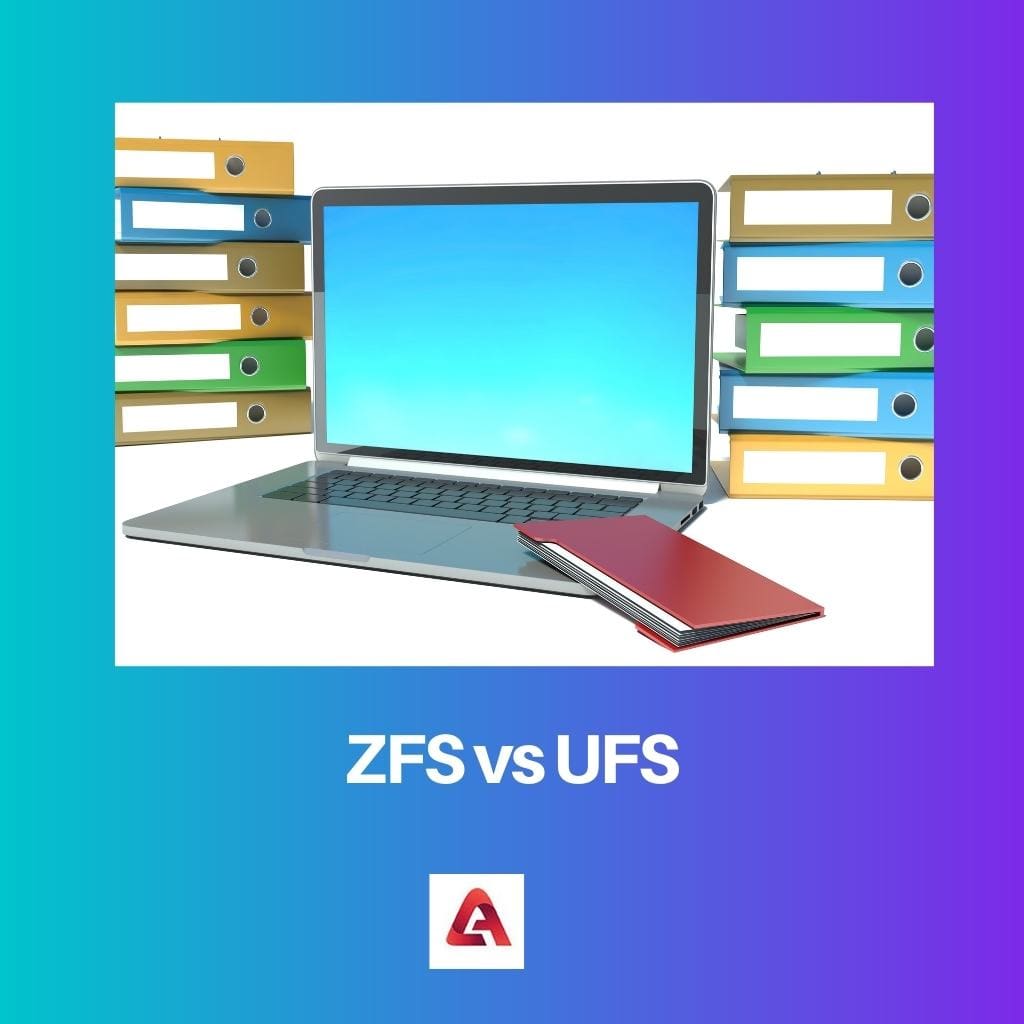A file system is how the data is stored and retrieved for future uses. Without a file system, it is almost impossible to recognize where data ends, and the next one starts.
Therefore, the file system recognizes each data with a specific name that is easily isolated and identified. In the file system, each group of data is termed a file.
Various file systems depend on the structure, logic, speed, security, size, etc. Some of the whole systems include VMFS, HPFS, NTFS, Veritas File System, ZFS, XFS, UFS, ReiserFS, etc.
ZFS or UFS is the file systems that are confused with one another. However, the two file systems differ from one another in various aspects.
ZFS or Zettabyte File System and UFS or Unix File System are open-source software licensed under the Common Development and Distribution License.
Zettabyte File System is a file system that comes with a volume manager and ample space. Unix File System is an old version with limitations on space and various other features.
Key Takeaways
- ZFS and UFS are both file systems used in Unix-based operating systems.
- ZFS offers more advanced features, such as data compression, snapshotting, and data deduplication, while UFS is a simpler file system with fewer features.
- ZFS requires more system resources than UFS and may not be compatible with some older hardware or software.
ZFS vs UFS
ZFS is a file system used in Unix and Unix-like operating systems. is known for its high capacity, data integrity, and integrated features like volume management and snapshots. UFS is also a file system used in Unix and Unix-like operating systems.is a traditional file system used in many older Unix systems, but lacks ZFS’s advanced features.

Comparison Table
| Parameter of Comparison | ZFS | UFS |
|---|---|---|
| What it stands for? | ZFS is an abbreviated form of the Zettabyte File System. | UFS is an abbreviated form of the Unix File System. |
| What does it mean? | ZFS or Zettabyte File System is an open-source software that has been given a license under the Common Development and Distribution License | UFS or Unix File System is a file that is more compatible with the Unix operating system and other Unix-like operating systems. It is also known as the Berkeley Fast File System. |
| Creation of nodes | In Zettabyte File System, Vnodes are automatically created at the time of the creation of files or directories, which are used to refer to the files or directories themselves. | In the Unix File System, Inodes are created at the time of the creation of the file system, and it is used to refer to the files or directories. |
| Level of mirroring | Mirroring in the Zettabyte File System occurs at the data level. | Mirroring in the Unix File System occurs at the level of blocks. |
| Features | ZFS supports high storage capacity and logical volume management, integration of the concepts of file systems, snapshots and optimization, continuous integrity checking, automatic repair, etc. | UFS offers reservations for boot blocks, which means they should be initialized separately. It also has a superblock necessary to identify the Unix file system. |
What is Zettabyte File System?
Zettabyte File System, abbreviated as ZFS, is a file system with a volume manager. In 2001, it began as a part of Sun Microsystems Solaris Operating System; however, when Oracle Corporation acquired it was placed under a closed-source license.
In 2013, it was again developed under the name OpenZFS. It is widely used in Unix-like operating systems. In this file system, Vnodes are created when the files or directories are created, and the mirroring occurs at the data level.
ZFS supports features like high storage, volume management, automatic repair, optimization, snapshots and replication, etc. It is also effective in detecting errors in the data. However, it assumes that the data is safe.

What is Unix File System?
In UNIX operating systems, the core component is a file system. It is an open-source software designed mainly for Unix and Unix-like operating systems. Initially, it supported ordinary directories and special or device files.
In the Unix File System, Inodes are created when the files or directories are created, and mirroring occurs at the block level. It provides reservations for boot blocks and their separate initialization. It also supports super locks that are important to identify Unix file systems.

Main Differences Between Zettabyte File System and Unix File System
- ZFS stands for Zettabyte File System, and UFS stands for Unix File System, Unix File System is also known as the Berkeley Fast File System.
- Zettabyte and Unix File System are open-source software under the Common Development and Distribution License.
- Zettabyte File System is compatible with all operating systems; however, Unix File System is more compatible with Unix and other Unix-like operating systems.
- Zettabyte has a larger storage capacity, while the storage capacity and the Unix File System are much less than the ZFS’s.
- In ZFS and UFS, Vnodes and Inodes are created when the files or directories are created, and both are used to refer to the files or directories.
- Mirroring in Zettabyte File System occurs at the data level, while mirroring in Unix File System occurs at the block level.
- Zettabyte File System supports logical volume management, optimization, automatic repair, continuous integrity checking, etc.; on the other hand, Unix File System supports separate initialization and superblock.
- https://ieeexplore.ieee.org/abstract/document/5226462/
- https://www.usenix.org/system/files/login/issues/login_june_2006.pdf#page=22
Last Updated : 11 June, 2023

Sandeep Bhandari holds a Bachelor of Engineering in Computers from Thapar University (2006). He has 20 years of experience in the technology field. He has a keen interest in various technical fields, including database systems, computer networks, and programming. You can read more about him on his bio page.

I found the details about ZFS and UFS very helpful to choose the right file system for my needs.
I agree, the article was a great source of information.
Absolutely, I learned a lot from reading this.
This article could have been more comprehensive and detailed about the ZFS and UFS file systems.
I think the level of detail was quite sufficient.
I agree with you, the article provided a good overview.
The comparison table was very helpful to understand the key differences between ZFS and UFS.
I agree, it made it easier to grasp the distinctions.
The information provided was enlightening and very well-explained.
This article was very informative and useful to understand the differences between ZFS and UFS.